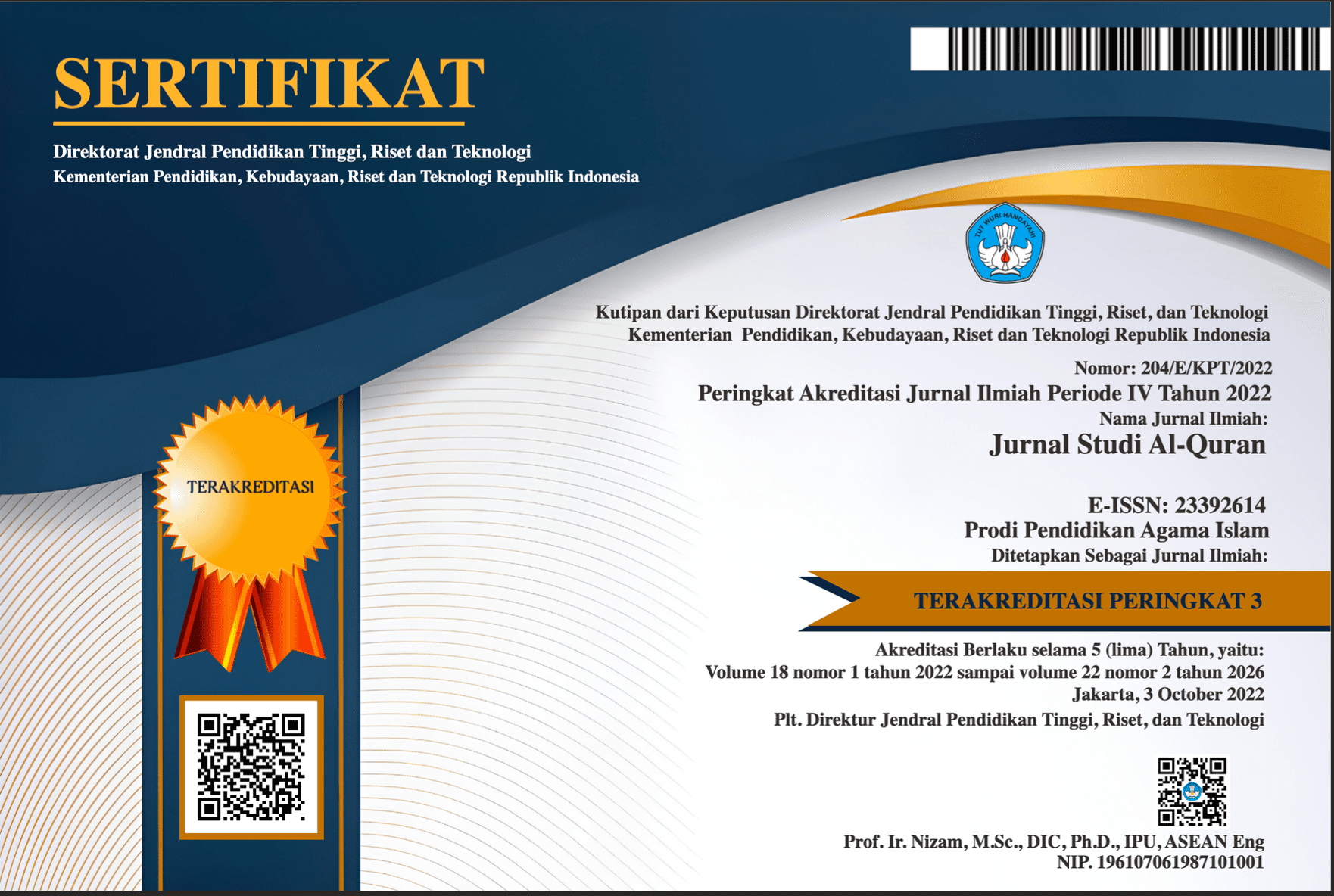Orientasi Beragama dan Implikasinya pada Daya Berfikir Kritis Mahasiswa Universitas Negeri Jakarta
DOI:
https://doi.org/10.21009/JSQ.015.1.06Keywords:
Religious Orientation, Student, Critical thinkingAbstract
Many factors cause weak thinking power in religion; one of them is religious orientation. This article aims to map the religious orientation of UNJ students so that it can be understood the direction, its tendency and its implications on its critical power. The study used a descriptive analytical approach with the acquisition of data through observation, questionnaires, and interviews. The findings are prepared with data presentation to be analyzed and drawn conclusions, as well as inputs and suggestions that can be submitted. The results of the study show that in general, religious orientation does not correlate with critical power in religion. But specifically, it was found that intrinsic orientation has a strong enough correlation with students' thinking ability. To increase the level of intrinsic orientation can be done by following religious studies.
Keywords: Religious Orientation, Student, Critical thinking
Abstrak
Lemahnya daya pikir dalam beragama disebabkan oleh banyak faktor, salah satunya di tenggarai oleh orientasi beragamanya. Artikel ini bertujuan untuk memetakan orientasi beragama mahasiswa UNJ, sehingga bisa dipahami arah, kecenderungannya dan implikasinya pada daya kritisnya. Penelitian menggunakan pendekatan deskriptif analitis dengan perolehan data melalui observasi, kuesioner dan wawancara. Temuan disusun dengan sajian data untuk dianalisis dan ditarik kesimpulan, serta masukan dan saran yang bisa diajukan. Hasil penelitian menunjukkan secara umum, orientasi beragama tidak berkorelasi dengan daya kritis dalam beragama. Namun secara spesifik ditemukan bahwa orientasi instrinsik memiliki korelasi yang cukup kuat terhadap daya pikir dalam beragama mahasiswa. Untuk meningkatkan tingkat orientasi instrinsik bisa dilakukan dengan mengikuti pengajian dan pengkajian agama.
Kata kunci: Orientasi Beragama, Mahasiswa, Daya Berfikir Kritis
References
Alkind, David dan John H Flavell, 1969. Studies in Cognitive development; essays in honor of Jean Piaget. New York: Oxford University Press
Barret, D.W, Peckham, J.A.P, Hutchinson, G.T & Nagoshi, C.T. 2004. Cognitive motivation and religious orientation. Personality and Individual Differences 38 (2005) 461–474
Din Syamsuddin, 1997. Peta keberagamaan Indonesia, Jakarta: UIN Press
Halpern, DF, 1996. Thinking Critically About Critical Thinking: An Exercise Book to Accompany Thought and Knowledge: An Introduction to Critical Thinking (3rd ed). Mahwah, NJ: Lawrence Erlbaum Associates, Inc. Publishers
----------------, 2014. Thought and Knowledge: An Introduction to Critical Thinking (5th ed). NY: Psychology Press
Moon, Jennifer, 2008. Critical Thingking (An Exploration of Theory and Practice). New York: Routledge.
Rakhmat, Jalaluddin, 2004. Psikologi Agama; sebuah pengantar. Jakarta: Mizan
Sternberg, R., Roediger, R & Halpern, DF (Eds), 2007. Critical Thinking in Psychology. Cambridge. MA: Cambridge University Press.
Stark, Rodney & Charles Y Glock, 1970. Amrican Piety; The Nature of Religious Commitment. London: University of California Press
Susilo Wibisono, 2012. Orientasi Keberagamaan, Modal Sosial dan Prasangka terhadap Kelompok Agama Lain pada Mahasiswa Muslim. Jurnal Insan, Vol 14 No 3 Desember 2012
Thouless, RH, 1992. Pengantar Psikologi Agama, terj. Machnun Husein. Jakarta: Rajawalipress
Tumanggor, Rusmin, 2014. Ilmu Jiwa Agama. Jakarta: Kencana
Downloads
Published
How to Cite
Issue
Section
License
Authors who publish with this Journal agree to the following terms:
- Author retain copyright and grant the journal right of first publication with the work simultaneously licensed under a creative commons attribution licensethat allow others to share the work within an acknowledgement of the work’s authorship and initial publication of this journal.
- Authors are able to enter into separate, additional contractual arrangementfor the non-exclusive distribution of the journal’s published version of the work (e.g. acknowledgement of its initial publication in this journal).
- Authors are permitted and encouraged to post their work online(e.g. in institutional repositories or on their websites) prior to and during the submission process, as it can lead to productive exchanges, as well as earlier and greater citation of published works.
Users/public use of this website will be licensed to CC BY









